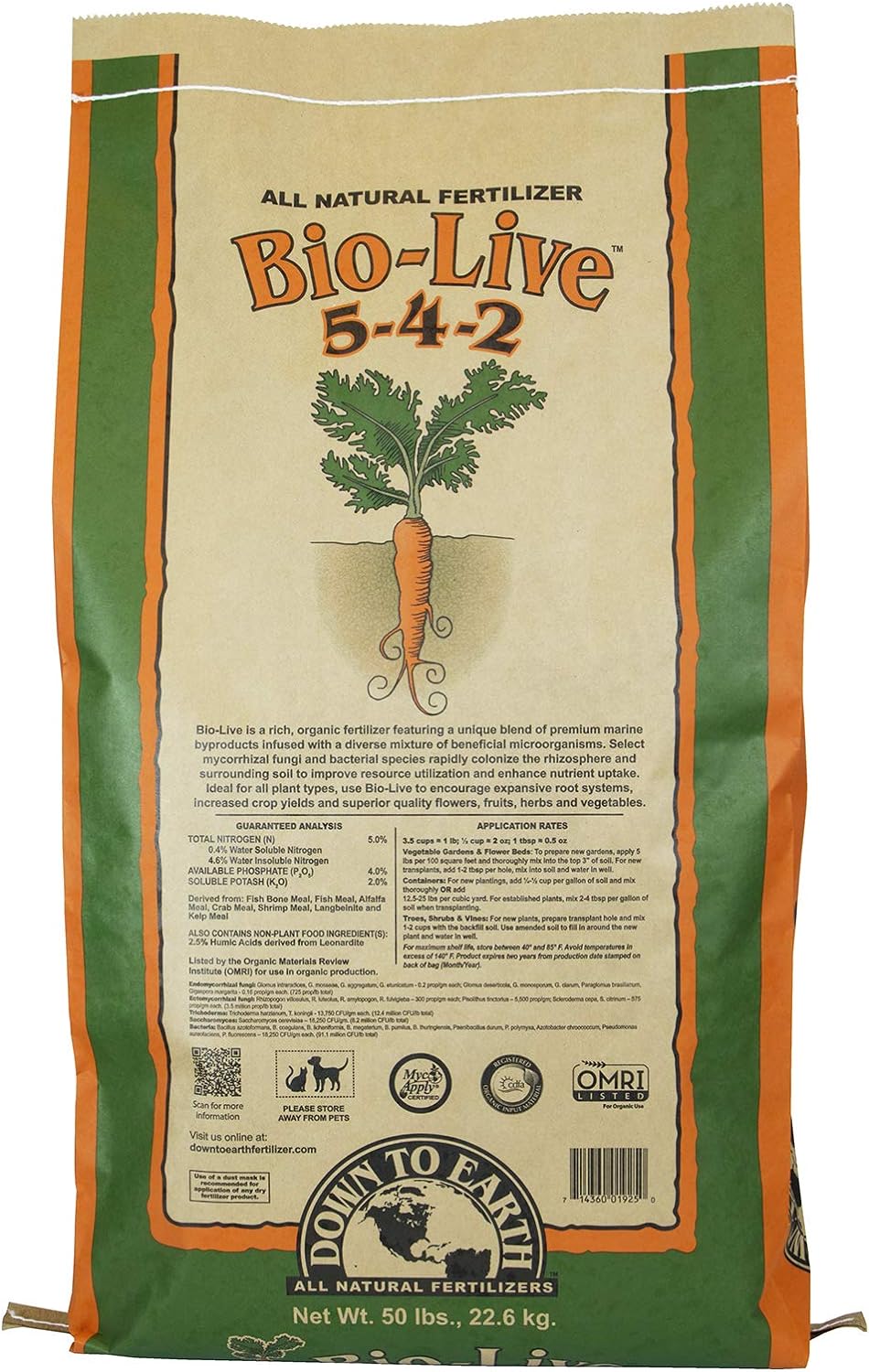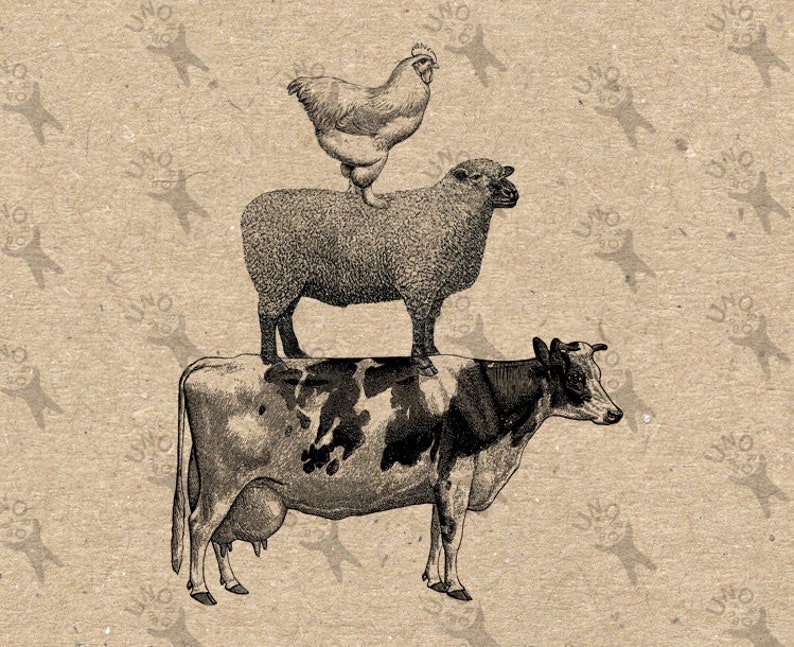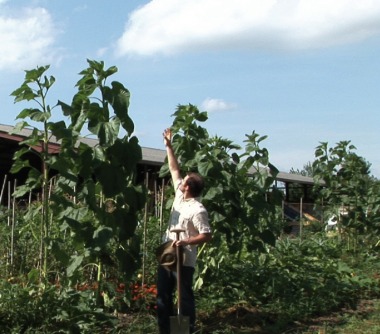I also bought a 50lb. bag of this fertilizer which my son had fabulous results with his tomato plants.
Bio-Live: I looked it up. Bio-Live
(Fish bone meal, Fish meal, Alfalfa meal, Crab meal, Shrimp meal, Langbeinite (K,Mg,S), Humic acid, Kelp meal. ENDOmycorrhizae Glomus Intraradices. ECTOmycorrhizae Rhizoposon Villosulus. R. Tricoderma. Trichoderma Harzianum). It has really good reviews. It's available in very few places where I live, and it's quite pricey, but I may try it. It has an expiration date due to the microbes, so I should buy only enough to use in the short term.
One never knows how one suggestion or idea can change things dramatically. I went to a garage sale once and exclaimed at the owner's flamboyant, prolific vegetables. "What's your secret?" I asked. He told me he used 'Soilutions' (which costs about $12-$15/bag) in his soil. I tried it with vegetables which had never been able to grow in my garden. I mixed a cup of 'soilutions' in the hole dug for each seedling, and, lo and behold, every plant grew tall and productive. It was amazing.
Nonetheless, I feel slightly idiotic offering any kind of gardening insights, since I know very little. Explaining what I've learned from experience is ok, but reading a book by an expert is probably better. I've gardened since I was a kid, just for fun, and I'm still a novice, not scientific at all. I rely more on "feel" and the generosity of the earth than I do on any interventions on my part. I'm not sure that's very intelligent. But if a plant is hurting, or I'm interested in growing something that fails to thrive, then it's a motivation to do some research and make some changes or try some ideas that come to me and seem suitable.
Over the years, I've tried:
**Fresh cow manure: by the truck load.....it's my absolute favorite. Most excellent! But the milk farms here have all closed up shop and it has not been locally available for years.
Bull and horse manure: not bad, but it introduced a plethora of new and unwanted weeds. I wouldn't do it again.
Bone meal: it invited garden predators -- a raccoon or possum somehow got over the fence and dug up all the plants to get at the bone meal.
**A broken egg placed in each transplant hole: this worked really well until a possum discovered what I was doing. I know it was a possum this time because I bought an outdoor camera to catch the culprit at work.
Liquid fish fertilizer: it worked better in the greenhouse than in the garden. Some people
ferment their own. There are some sophisticated recipes on-line. Other people I know keep things simple and simply throw fish parts in a bucket with water and some dried leaves and let it rot. If you leave it outside in the lawn it can attract unwanted animals.
**Kelp and seaweed collected at the beach. I've put buckets of raw seaweed (entangled with shells and sand) on the garden for years, and just let it deteriorate. It seems to have made a big difference over time, but it requires a lot of lifting and carrying (wet seaweed is heavy and it's a long walk from the beach to the car).
**Kitchen compost aged 6-18 months: Priceless! With a bonus: A lot of kitchen scraps have seeds (like pepper or cantalope seeds), which get lost in the mix. However, some composted seeds (particulary tomato seeds, winter squash seeds, and avocado seeds) are different; they must LOVE being composted and frozen over the winter. In late spring, if I put some mucky kitchen compost in a wheelbarrow and keep it watered, dozens of tomato plants and several squash plants will sprout (like spontaneous generation) and grow beautifully. All I have to do is pull them up and transplant them.
Manure Tea: my grandfather would put manure in a trash can, fill it with water, let it sit for some time, then put a bucket of the tea on each plant every week or two. So I've copied his 130 year old technique. It's become popular and more scientific now.
Egg Shell and Bone tinctures: There are many recipe alternatives on-line. I'm experimenting with Palmer's recipes now, because I met the man and he was kind, funny, and interesting.
My
potting soil comes from
grass clippings, green plants, and leaves piled up and left to deteriorate for 1-2 years. It's worked out nicely. I've learned that I must NOT put any plants that have gone to seed in that pile (especially crabgrass, smartweed and mugwort). I've heard that the heat generated by a normal compost pile will kill any unwanted seeds, but this pile never gets very hot, so the seeds survive and can reek havoc even years later.
Weeds are a problem. Some years ago, I planted only seedlings -- no seeds -- then sprinkled organic
corn glutin all over the garden to prevent weed seeds from growing. The corn glutin was sprinkled twice -- spring and mid summer. (Three or four sprinklings would have been even better.) It was just an experiment. It worked very well. It made life so easy. It reduced weeds by probably 70%. But I never tried it again and went back to pulling the weeds up. Corn glutin shouldn't be used in the garden if you grow plants
from seed (though it CAN be used if you plant with seeds if you are willing to deal with the tricky timing issue, but it is safest to use it only when you plant established seedlings, not seeds).
I can't always plant to the
phases of the moon for lots of obvious reasons. However, both my father and I have both discovered that, in our neck of the woods (New England),
pole beans and
green peppers really must be planted according to the almanac or most of the seeds will just rot in the soil. Odd. All other plants have been far more flexible and forgiving.
Rabbit manure is reputed to be fabulous, but no one sells it around me. It should do wonders for you. I'm told it does not have to be composted like chicken poop, but can be used in the garden right off the hutch. Lucky you!
I'd love to replicate the ancient methods of biodynamic agriculture, but that's just not going to happen - well, not this year, anyway. It needs too many exotic ingredients and requires too much dedication for now. But I love reading about it and appreciating the wisdom of people who communicated more intimately with nature and the cosmos.
As an aside, my mother was a free spirit with a good heart and a quiet but shrewd intuition. She planted things. She did almost nothing to her garden or her plants except water them -- and she didn't water them very often; just when she remembered or felt like it. Yet every plant she touched thrived, blossomed, lived long, prospered, had many children and provided plentiful good fruit. I was humored by this, and also perplexed. So much output from so little input. But I think she was onto something. Spirit may very well be the greatest gardener.


 .
.

